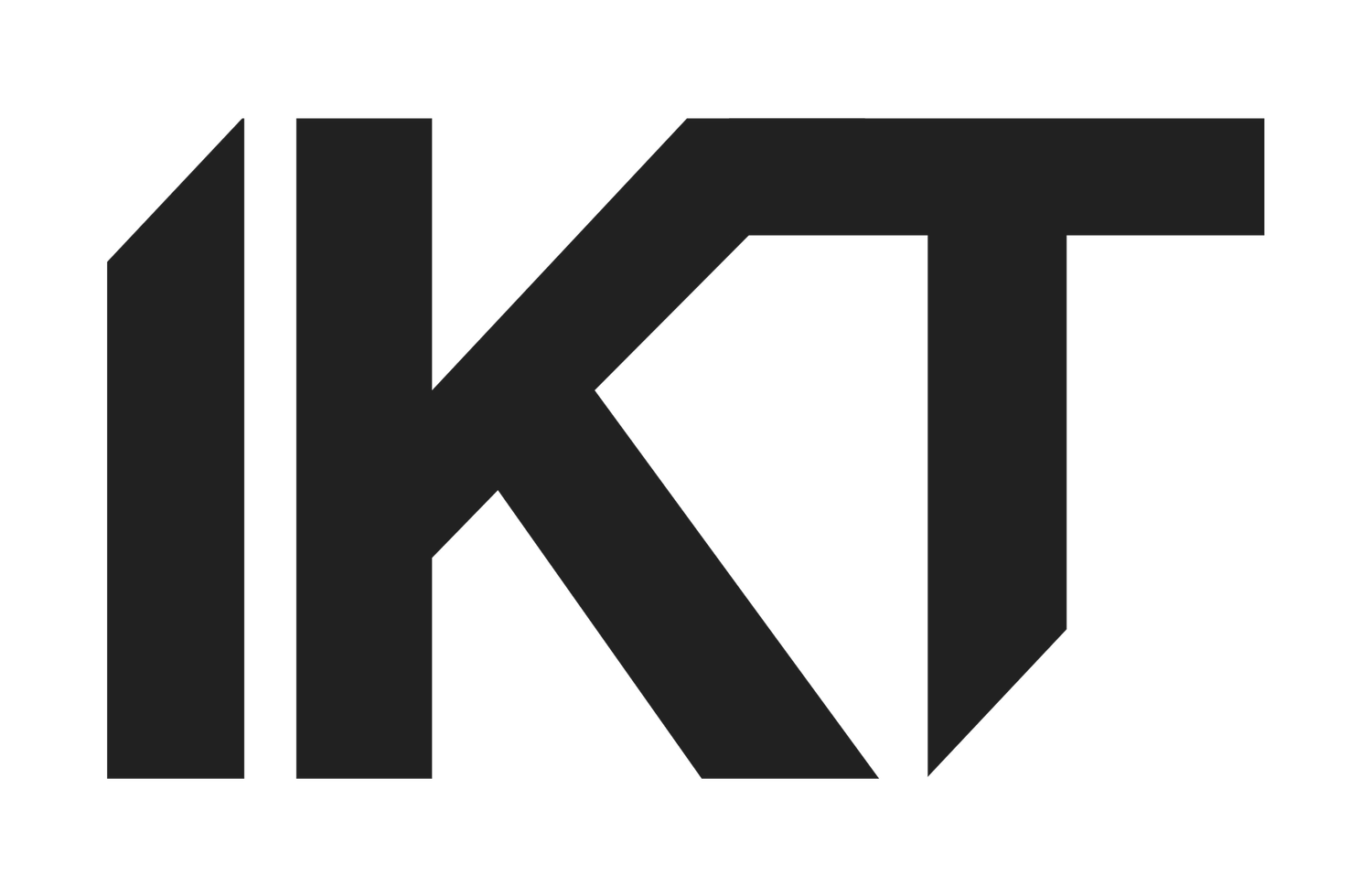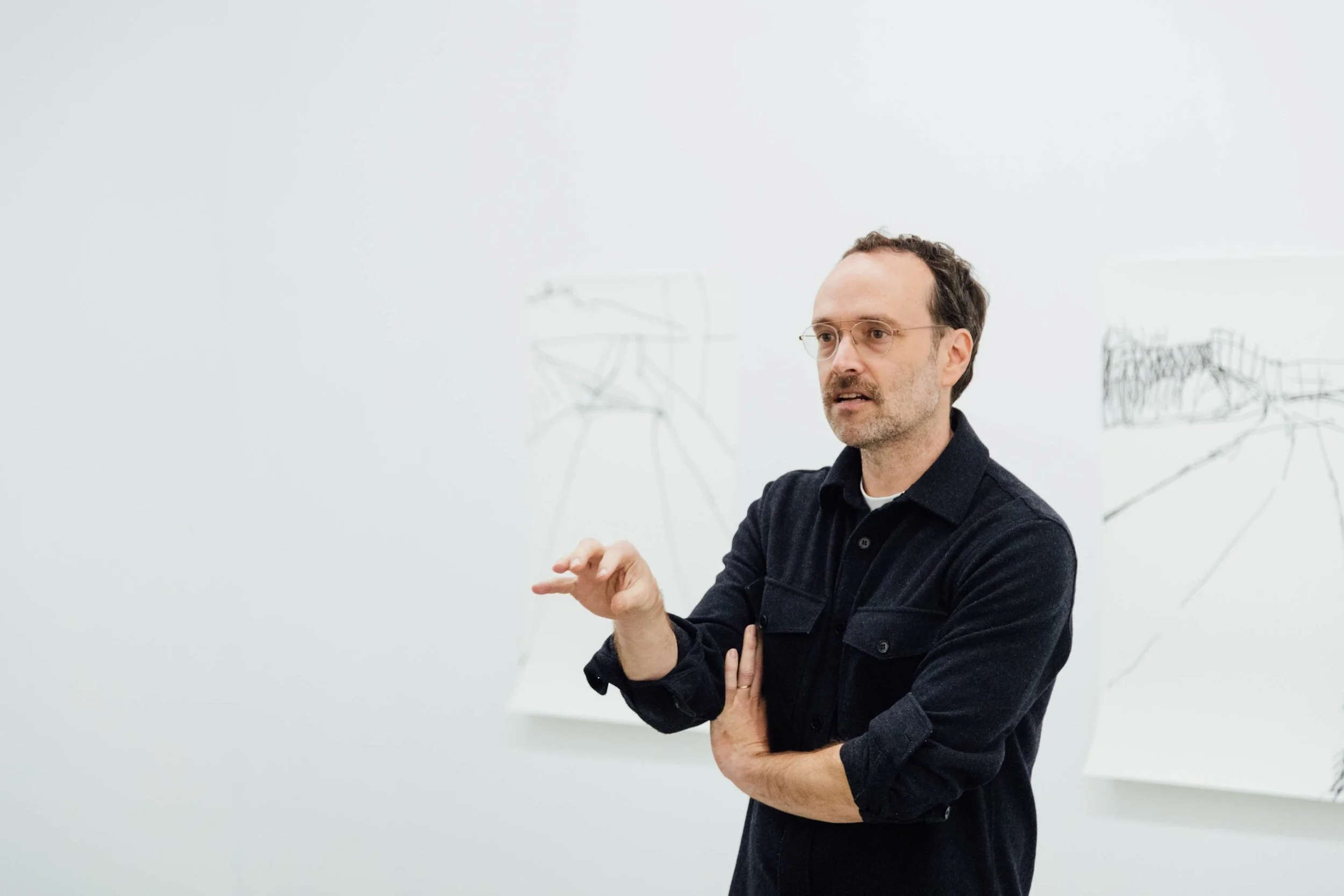Spotlight with Frank-Thorsten Moll
Frank-Thorsten Moll, Director, IKOB - Museum of Contemporary Art, Eupen, Belgium.
Could you tell us a little more about your background and how you got into curating?
I studied art studies and philosophy at a university for arts and design (Hfg Karlsruhe, Germany) and always co-organized projects with other students. The fact that artists and projects were always within reach and that there were many points of intersection in teaching helped me to learn to work together with artists naturally. Professor Gohr, who was not only an outstanding art historian but also a former curator (Museum Ludwig, Cologne), taught us that curating is a serious profession. Nevertheless, it was clear to me as a young graduate that I never wanted to be a curator. The whole thing seemed too frivolous and hierarchical to me. Well, things turned out differently.
Who/what has influenced your curatorial practice?
Ultimately, I've always learned a lot from the artists I've worked with. And of course also from one or two colleagues. Looking back, however, I was most impressed by an exhibition organizer who passed away in 2005. It was a very special exhibition that I saw in Ascona (Switzerland) when I was about 10-12 years old. This exhibition made me realize that an exhibition is more than the sum of its artefacts and that the same artefacts can be used to tell countless stories that say a lot about the past, but at least as much about the present. The exhibition in question was Harald Szeemann's reappraisal of the eventful history of the so-called Mountain of Truth (Monte Verità), where he managed to bring to life the diverse and contradictory history of the mountain's inhabitants – somewhere between veganism and anarchy.
The role of the curator is continuously changing. Could you describe what it means to be a curator today?
I think it's quite difficult to be a curator today. I experience my profession as extremely contradictory and I think that enduring contradictions is one of our most important tasks today. But of course, enduring is not enough. Constantly questioning our own privileges, in my case that of a white, cisgender man, should lead to an even greater change in our curatorial approaches. Often - at least that's my impression - I remain somewhat self-righteous and content in the phase of realization. But action must follow if curatorial practice is not to become too comfortable in its contradictory nature. This calls for greater sensitivity towards minorities, fair and transparent payment and recogition for all those involved in the projects and a stronger focus on sustainability.
In order to credibly pursue these goals, I am currently working with my team on a strategy to anchor global issues more firmly in the local context by developing projects such as “Volle Scheunen” (Full barns), which are decidedly geared towards the needs and problem-solving strategies of the region.
Tell us about the latest exhibition / project that you curated.
I recently curated an exhibition with Yann Freichels, a 28-year-old artist from East Belgium who paints in an extraordinarily independent and free way, working through his cultural bipolarity between Francophonie and Germanophonie. He is definitely someone to keep an eye on.
In the near future, my colleague Brenda Guesnet and I will be curating the third edition of the “feminist art prize”. It is currently still the only award that consciously addresses artists who work for the cause of feminism, regardless of their gender, age or background. Now, on the threshold of the third edition, I'm just very, very happy to see this baby grow. The call for entries will be published in early to mid-November and I hope that many artists will apply.
What are you reading, watching, or listening to now, that is helping you to stay relaxed and positive?
I'm listening to a lot of podcasts at the moment. One podcast that is very enriching for me is “Tech won't safe us” by Paris Marx. He takes a close look at the promises of salvation in Silicon Valley and analyses them critically. He shows that we must solve our pressing problems, almost without exception, WITHOUT “Big Tech” in order to have even a small chance, because big tech is not the solution, they are part of the problem. This approach strongly resonates with the recent book” Technofeudalism: What Killed Capitalism” by Yanis Varoufakis. Both will certainly play a role in a chapters of my planned exhibition project “Volle Scheunen” (full barns), in which an exhibition with many thematic stations will spread across East Belgium in 2027, 30 years after its first edition curated by Francis Feidler and Manfred Schneckenburger (curator of Documenta 6 and 8).
How long have you been part of IKT and how do you feel that it has benefited your curatorial practice?
I think I must have attended the first IKT conference in 2006, or perhaps as early as 2005. Although I have often been unable to attend in recent years, I have always felt connected and believe that the IKT is a good indicator of what curating and being a curator means today.
Thank you Frank-Thorsten!
Learn more about IKOB - Museum of Contemporary Art: Website | Instagram | Facebook
Spotlight
Spotlight is a new series of short interviews, aiming to showcase the diverse expertise and innovative approaches of our IKT members. Whether you're seeking inspiration or searching for potential partners, join us on this captivating journey as we uncover the stories, ideas, and creative visions of our members.
Want to participate?
Send us a request to ikt.curatorial@gmail.com and we will send you interview questions.

